This week, The Naked Scientists are celebrating their 15th birthday and so Graihagh Jackson puts science under the microscope and questions its importance in today's world.
In this episode

01:09 - Most science isn't groundbreaking...
Most science isn't groundbreaking...
with Patrick Short, University of Cambridge
Most science isn't groundbreaking; it often builds a picture, pixel by pixel, to  complete our understanding of the world, as Patrick Short demostrated to Graihagh Jackson on a whistlestop tour of genetics...
complete our understanding of the world, as Patrick Short demostrated to Graihagh Jackson on a whistlestop tour of genetics...
Graihagh - Hey.
Patrick - Good morning, how are you?
Graihagh - I'm good, how are you?
Patrick - Great! Good to see you again.
Graihagh - I have a present for you.
Patrick - Wow! Pea shoots - this is great!. Where did you get those?
Graihagh - I'm glad you recognise they're pea plants and not brought along to woo you.
Patrick - I'm a terrible gardener; everything I touch dies!
Graihagh - Meet Patrick Short - he's doing his PhD in genetics at Cambridge.
Patrick - This is actually, probably the first time I've closely studied a pea plant. I wish I was more of a pea plant expert.
Graihagh - So can I start by asking you why are we talking about peas? I know I know why I'm talking about peas but I'm just thinking no-one else will know why we're talking about peas.
Patrick - We're talking about genetics and for most people the timeline of where genetics really begins is with a monk called Gregor Mendel. He grew up in - it's modern day Czech Republic - but the Austrian-Hungarian empire, and he was the first one to really study this idea of inheritance.
Graihagh - By the time Darwin and Wallace had come along and said new species evolved via natural selection but not how and this is where Gregory Mendel fits in.
Patrick - At the time they had some idea of inheritance. They knew that things were passed on and the dominant model was kind of a blending thing; if you had white flowers and red flowers they became pink flowers. But he was one of the first to really systematically study this phenomenon and he did it in his garden with pea plants.
Graihagh - It was something like 36 varieties that he studied for 8 years and he cross-bred them didn't he to work out how they were changing colour and how the leaves changed in length or fatness - it's quite a meticulous bit of work?
Patrick - Yes. Apparently, if I remember correctly, he originally wanted to study animal breeding but the monastery wasn't particularly comfortable with him study animal sex, so they said why don't you just focus on the plants and, eventually he stumbled on something really fascinating.
Graihagh - And what was that?
Patrick - I think his main two contributions are this idea of the segregation of alleles so you can essentially study the first generation, second generation, third generation and you see some that are dominant. If dad has brown eyes and mom has blue eyes, then the child is going to have brown eyes. But if you keep watching then the blue allele actually doesn't disappear - it sticks around so then, if you go another generation down, you actually see children with blue eyes pop out again. He was the first to pinpoint this idea that some traits are dominant and others are recessive and you have this dance, so this balance over time of these things being passed on.
Graihagh - The one thing that I find pretty staggering is that he worked out not only do you get one gene from mum and one gene from dad, and then that there are dominant and recessive genes, but he managed to work out, in a pea plant, which ones were going to be dominant and recessive - that's insane to me.
Patrick - Yeah, it's good. At its most basic level it's fractions and it's maths - yes it's simple but I'm sure it was very difficult for him, at the time, to wrap his head around.
Between the time of Gregor Mendel around the 1960s to around the mid 1900s there were a lot of incremental changes like - science always works in small steps.
Graihagh - For instance, in 1866, Ernst Haeckel theorised that the stuff of inheritance would be found in the nucleus of a cell. Three years later, the young Swiss physician Friedrich Miescher had shown the stuff in the centre of a cell nucleus was nucleic acid - one of the building blocks of DNA. Things were moving fast and by 1944, DNA was determined to be the thing that held this genetic material. Lots of small, incremental steps... but...
Patrick - Sometimes there are really big leaps, and one of those big leapswas in 1953 when Watson and Crick, with the help of Rosalind Franklin, published their structure of DNA - so this is the double helix that we are all familiar with.
And I don't know if you realise it but just around the corner up here is the Eagle pub in Cambridge where it's said that Watson and Crick announced their discovery of the double helix.
Graihagh - Patrick says 'it's said that' because recently, well, Watson changed his mind and said that actually, he didn't announce the discovery in the Eagle pub. Nonetheless, we went over to have a gander at the big blue plaque outside.
Would you like to do the honours and read the sign?
Patrick - Yeah, sure.
DNA double helix 1953 - the secret of life. For decades you go to the local pub for scientists in the nearby Cavendish Laboratory. It was here on February 28th, 1953 that Francis Crick and James Watson first announced their discovery of how DNA carries genetic information.
Unveiled by James Watson on the 25th April, 2003.
Graihagh - It's a beautiful, blue plaque.
Patrick - It is. As everything in science, we recognise a few people but there's always tons of researchers involved, so the three people who shared the nobel prize were: James Watson, Francis Crick, and Maurice Wilkins.
And it was Maurice who was the one who pushed this idea from the beginning and ended up convincing Watson and Crick to jump on with him. And then, of course, you've got Rosalind Franklin who did a lot of the work on the X-ray crystallography and diffraction that was really the catalyst for this whole thing to take off and so it's quite amazing. And I'm sure there were students, and researchers, and all sorts of people that were there along the way questioning assumptions and coming up with ideas and, after all this time, the structure was discovered here in Cambridge.
Graihagh - Understanding the structure as this double helix - what did that enable; how did that improve our knowledge?
Patrick - We have this idea of inheritance and the most important thing, and what was probably on everybody's mind was how do we read this stuff. So we know it's a catalogue, or an instruction manual, or a recipe book, but we can't really understand its secrets until we figure out a way to manipulate it, understand it, see what's happening. And, from a chemist's point of view, or from a biotechnologist's point of view, knowing the structure of this molecule makes it a lot easier to manipulate and design technology to actually better understand it. So this discovery paved the way for everything that we've been able to do in the last 60 or 70 years to understand this promise of genetics.
Graihagh - So while scientists now knew the structure of DNA, they didn't actually know the code - the letters or base pairs - that pair together to form a gene or a word if you're using that analogy. This was found out in the 60s and then the first entire piece of DNA was sequenced by Fred Sanger in 1977. It was a bacterium though, so naturally, human DNA was next on the agenda but not for another 25 years or so... A train ride later, and Patrick and I found ourselves in that 'promised land.'
Patrick - Alright, so we're at the Sanger Institute which is in Hinxton, just outside of Cambridge. So you may be familiar with the Human Genome Project; this is a big international effort to sequence the human genome. And incrementally we figured out more high throughput ways to actually take this molecule and convert it to some sort of digital information that we could analyse. So Fred Sanger worked with a funding body in the US (The National Institute of Health) as well as the Wellcome Trust and they opened the Sanger Institute where they did, I think actually, more than a third of the total sequencing of the project worldwide.
Graihagh - And when you say sequencing - what do you mean?
Patrick - If we think about the genome as a recipe book, so Watson and Crick, in some ways, showed us what this recipe book looked like and sequencing is what allows us to read the letters. So at the point of sequencing you still don't know what it means; you just have a string of information. And then the next job, once you've got the the technology to sequence the first person, then you start to understand what are the patterns in the data; what do these letters mean. How does that information get transferred is the next step but you have to be able to read it first.
Graihagh - And that is where this happened?
Patrick - Yes, that's right. Since then, the Institute's been involved in Thousand Genomes Project as well as a project that's going on right now to sequence one hundred thousand people here in the UK. So it keeps scaling and it's always been at the forefront of this genetic technology.

10:45 - What do scientists actually do?
What do scientists actually do?
with Professor Stephen Curry, Imperial College London
Guardian blogger and biologist Stephen Curry shares the ins and outs of his  day...
day...
Stephen - The radio clicks on at 6 am and I lie in bed snoozing for about forty-five minutes. I find that's the least problematic way to absorb the Today programme on Radio 4. I shower and gobble a bowl of cereal. A bus, a train, a tube, and an hour later I'm in my office at the university, attacking email.
At 10:15, I meet my PhD student for coffee. It's a semi-social occasion - normally, we chat about weekend stuff but today, we're discussing the final segment of her thesis. She's almost ready to submit and the conversation turns to the next chapter in her life: how to stay in academia.
Forging a career in research is a competitive business and carries big risks. Only about 1 in 200 PhD students ends up as a professor. My student has two options really - apply for a fellowship, which would give her a measure of independence, or for a postdoctoral position to work, for now, in someone else's lab.
Fellowship and grant applications are arduous work. You've got to fill out lengthy forms, box after box describing your past achievements, and the merits of your proposed and explaining how it will impact society and so on... There's a fine balance to be struck between putting forward an exciting but risky project, and reassuring the funder that the plan of investigation is feasible, so that their money won't be wasted. It's a tricky game.
And fresh-faced postdocs need to be prepared to play that game over and over. It was hard enough when I started over 20 years ago, but the competition for funding is even fiercer now.
And that's before you start thinking about the pressure to publish in leading journals - because that is, unfortunately, how most research is judged. Our systems of assessment have too much emphasis on where rather than what you publish.
This pressure puts young scientists like my PhD student on a treadmill almost from day one. A former postdoc of mine once described the academic publishing culture as "a pissing contest". I wonder whether my student will be able to sustain her evident enjoyment in research.
I don't have a solution for her just now but I suspect that people like me, old guard, have to do more to ensure young scientists get the recognition they deserve.

13:43 - The 'perfect' experiment
The 'perfect' experiment
with Dr Sam Behjati, Wellcome Trust Sanger Institute
Classically, an experiment starts with a good question but with the latest science, that's not neccessarily the case as Sam Behjati explained to Graihagh Jackson...
that's not neccessarily the case as Sam Behjati explained to Graihagh Jackson...
Sam - So after I have received my grant, I guess the first thing that would happen is a big sigh of relief. Obviously when it happens it's amazing and when it doesn't happen it's an enormous disappointment. And then, of course... the hard work begins.
So my name is Sam Behjati. I graduated from medical school in 2006 but we mainly do clinical work, so my main scientific career was my PhD, which was 2011 to 2014 and then I've restarted with research in March of this year.
Graihagh - What drew you back to research?
Sam - Oh I love sitting here and looking at my data; it's a phenomenal place to be.
Graihagh - We met for a coffee at the Sanger Institute to go through what a 'good' experiment means, and Sam although recently returned to research, has published around 50 papers in prestigious journals like Nature, Science and the British Medical Journal.
Sam - Classically, one would say... a good experiment starts with an excellent question but, I think, in our field of science where we do genomics, the first bit is to design that screening part of the experiment really well.
Graihagh - Can I think of it as screening - just finding those people who have say bowel cancer, if that's what you're looking at, and then within those select people looking for what mutations they have in common that might cause this cancer?
Sam - Perhaps we could talk through a specific experiment that we've published in the past that might just make it easier. So one of the various genotypes that I was interested in is something called "chondroblastoma," it's a very rare tumour that is mostly benign and it occurs in the end of bones. The problem with chondroblastoma is it tends to come back and it tends to destroy bones so, although it isn't a lethal cancer, it's quite a debilitating cancer.
So, I was interested in that tumour and I wanted to know what drives these tumours so what we did is collaborate with a pathologist (someone who collects tumour samples), Adrian Flanagan; we extracted the DNA; we also obtained normal tissue from the patients. And what that then allowed us to do is we've got these tumours, and then we sequence every single piece of information of the genome and compare the tumour to the normal tissue. And the difference between the tumour and normal tissue - that makes the cancer. Does it make sense?
That would be the screening experiment and, in this particular case, we found a single mutation that literally defines these tumours.
Graihagh - In some ways it sounded like quite an easy "this is the gene" but it's not always like that; it's much more complicated and nuanced. So how do you sequence all this data?
Sam - So we extract DNA and that goes onto the sequencers and they read in every single base of the human genome, so all 3 billion bases. But not only once but several times over. So they generate all this data and that's a real challenge in our experiments because you're overwhelmed with data. So if you think what 150 billion pieces of information that you need to process, obviously you can't do that on your computer; you need enormous storage space and you need enormously powerful computers to be able to process it.
Graihagh - Sam took me over to where these enormous computers are kept and to be honest, I didn't really know what to say about it. Fortunately, Sam had a few reflections of his own...
Sam - It looks cool.
Graihagh - It does look cool! It does look cool!
Sam - Like out of a spaceship!...
So we are standing in front of the data centre. So we are looking for a window and behind that window are a lot wires, a lot of black boxes and quite a lot of green and red lights.
Graihagh - It looks like a series of computer hard drives stacked on top of each other with lots of wires and lots of lights... it looks very complicated and its row, after row, after row of these things.
How many of your genome sequences would this hold or is that even unfathomable in terms of mathematics - off the top of your head?
Sam - I've absolutely no idea how big this computer frame is now because it constantly grows.
Graihagh - The thing is, you've got millions of bits of data and so finding something that's statistically relevant is....
Sam - Like finding a needle in a haystack, in a way.
Graihagh - And that's why you need the statistical analysis?
Sam - That's why we do need the statistical analyses indeed. Because, mainly, what you get when you do these experiments is you mainly end up with noise. So the main art is in getting rid of the noise and finding the truth. And finding the truth involves a lot of very intricate review of raw data but also doing further validation experiments to show that what you think you've found is, actually, true.
Graihagh - So you've got your results and then, I guess, the next bit is to write up those results, to have a discussion and compare it with other bits of the literature. Who does what; if there are multiple authors on a paper do you fight over the last word or do you hash things out together or do you give each other segments - how does that process come together?
Sam - I think different labs do things in very different ways and our lab has a particular style whereby one person writes a draft, and that then is a basis for further discussion, and then it does come down to battling every word and expression. The people that I've written with - some have have a very sort of bloomy, fruity style of writing, others are very matter of fact. And it has to be absolutely consistent with the truth. So whatever we say we've got this rule in our heads we have to be able to stand up in a court of law and defend every single sentence, every single word and expression that we've used in our paper.
Graihagh - How long does that take - I imagine it takes some time if you're fighting over every last word?
Sam - It depends. The quickest paper I've written was perhaps about four weeks and the longest paper I'm currently hacking away at, and I've been hacking away at it for about five months.
Graihagh - How does that make you feel?
Sam - Ah, I just want to get rid of it! I mean you get to a point where you don't care any more whether it gets published or not because you just want to get it out of your life.
Graihagh - OK. And I suppose the next step is what sending it, selecting a few journals perhaps and sending it off to them?
Sam - We think about the journal first. I mean you think about who your target audience is, and what the sort of journal is you think you may want to target. And then you also have a realistic review of your data and you say is it important enough or of enough impact to go into this or that journal?
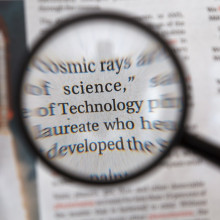
20:12 - Peer review: Scrutinising science
Peer review: Scrutinising science
with Dr Keith Smith, AAAS Science
To assure a level of research quality, science is put to the test using the peer 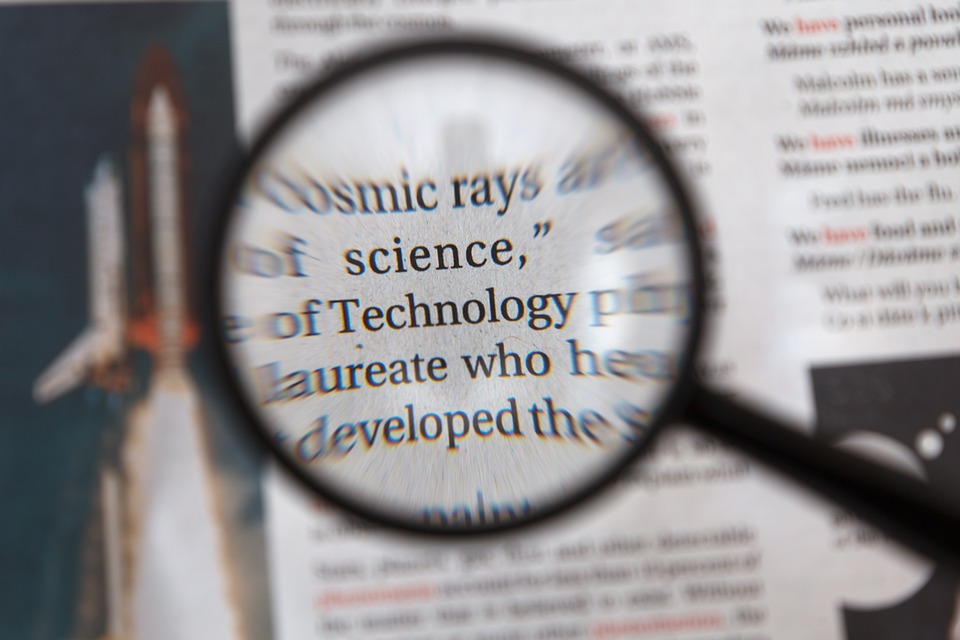 review process, as Keith Smith explained to Graihagh Jackson...
review process, as Keith Smith explained to Graihagh Jackson...
Keith - I'm one of the research editors for Science magazine.
Science magazine is one of the biggest and most prestigious scientific journals in the world and we publish both news and research from all areas of science looking for the top quality, big breakthrough stuff.
So the magazine has around a million readers.
Graihagh - Impressive stuff - no pressure then for people like you?
Keith - Yes, that's part of the fun of the job!
Graihagh - The other part of Keith's job is to oversee something called the peer review process.
Keith - Peer review is the kind of quality control around scientific papers. It's a method of ensuring that what is reported in a scientific literature passes the basic requirements of the way that it's reported, that if fits all the standards of publication, that ensure that what they've done is a good piece of work. And that's what the peer review process is supposed to ensure by having other researchers in the field check that they've followed the standards.
Graihagh - Talk me through what happens. A manuscript lands on you desk - what's your first port of call?
Keith - Whenever we get a new manuscript I do an initial assessment just to make sure that this is a suitable topic for our journal; that it's not obviously wrong or crazy or whatever, and every journal does get those submissions. But then we will send it out to referees for peer review and ask them to comment on the manuscript.
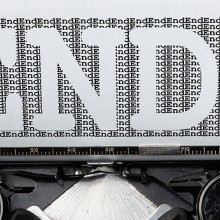
22:19 - Publish or perish?
Publish or perish?
with Professor Stephen Curry, Imperial College London
Should scientists be judged on where they published rather than what they publish? No, says Stephen Curry...
Stephen - Caffeinated and back in my office, I gossip for 10 minutes with a colleague before making a start on reading a manuscript that I've been asked to review by an academic journal.
This is the peer review process and it's supposed to provide quality control. My eye stumbles along the first few lines of stilted prose in the paper's introduction and my heart sinks. This is going to be a long haul.
I steel myself by remembering why I do this. I'm not paid or credited for the hours it takes to review the 20 or 30 papers and grant applications that land on my desk each year. It's a quid pro quo. After all, I expect others to review my papers, though I hope I don't give them as much grief as these guys seem to have in store for me. My editorial hand stops on every other line of the manuscript to correct or comment in exasperation.
The peer review process isn't perfect but it works well enough most of the time, providing a useful opportunity for authors to clarify or improve their papers before publication. But there are growing concerns about the inability of peer review to catch all errors. Some are just honest mistakes, but in other cases, the reviewers are fooled by outright fraud! Infamously, some authors have even created fake email addresses so that they would be sent their own papers for review. And the bad behaviour is becoming more common: between 1975 and 2012, there's been a 10 fold increase in the numbers of scientific articles retracted after publication. In over 70% of cases the retractions were due to scientific misconduct of one type or another.
It's unfathomable to me that researchers would write up results they know not to be true. But scientists are human too and this is the dark side of the ubiquitous pressures to publish. It is a complex problem, but at least it seems to be attracting more attention. As a community we need to recalibrate our incentives to reward good, reliable science and not simply publication in top-tier journals.
But back to the manuscript at hand which, after a few tortuous hours, I have now finished. My initial assessment? Bloody awful. But I know I need to wait a day or two before writing my report: time for my inner nit-picker to calm down.

25:01 - The dark side of peer review
The dark side of peer review
with Dr Keith Smith, Science Magazine, AAAS
Peer review may provide a level of quality control but what can be done to  improve it? Keith Smith explained to Graihagh Jackson how he ensures they're up to standard...
improve it? Keith Smith explained to Graihagh Jackson how he ensures they're up to standard...
Keith - Well, the reviewers reports will always be read by the editor before being sent to the authors.
Graihagh - Keith Smith again, from the journal, Science.
Keith - There are various reasons why we need to do that; we need to check that there aren't personal attacks or inappropriate things in there, for example. But the editor will often have consulted several referees (maybe two or three), and will need to weigh up the opinions from the different referees who might disagree with each other. You might have one referee says "this paper is too long, it needs to be cut down," and another referee who says "this paper doesn't have enough detail in it, you need to add more method" and, obviously, you need to balance those things.
We use a system called "cross review." which is showing the reports to all the other referees and asking them to, essentially, check each other, but those are really new systems that are coming into effect. Most journals still reply upon the editor to do that collating.
Graihagh - And you mentioned checking reports for things like "inappropriate behaviour" - is that common and could you perhaps give me an example of where that's happened?
Keith - It's not common at all! I've been an editor for scientific journals for five or six years now and I've only seen it come up twice. That's over all the thousands of papers I've handled in that time.
There are occasions where somebody will put something in there that suggests they have not assessed the paper on the basis of the science within it but, instead, they've assessed the paper on the basis of who wrote it.
There was an example in the media a few months ago of a referee's report, which was sent to a group of female authors, which said in it "I suggest that you add a man to your author list in order to balance this paper out," and that was clearly not acceptable again. And how, in that case, it got past the editor and, to be fair, the editor resigned, but that's the sort of thing that we're checking for on a very, very basic level. But I am pleased to say it is very, very rare and, if we do see anything like, we immediately discard the report and get a different referee to look at it.
Graihagh - And we talked a little bit about the dark side of peer review, but is that the only sort of problem you get in peer review or are there other things that need fixing or improving upon?
Keith - So peer review is something that everybody agrees is not perfect; there is a lot of debate as to what exactly can be done to improve it. But some of the things we need to watch out for are referees who have a conflict of interest, for example. If I've asked a referee to assess a paper and it turns out they are working on a very similar piece of research themselves and they have it in process at another journal at the same time; they're trying to get their paper out first, then they might be tempted to deliberately slow the process down, and that is a real danger. We do ask referees to declare any possible conflicts of interest but not everybody does it. Sometimes you do find out but, often, only too late.
Graihagh - Although not perfect, the peer review is in place for a reason - it does provide a level of quality control but what could be done to improve it? Keith suggested more transparency, in particular making raw data available, so referees can also check that too, but my favourite solution involves an award, after all, everyone likes a certificate...
Keith - There has to be an incentive to referees to ensure that they are doing a good job and that they're doing it in a timely fashion. At the moment, if a referee is late with their report the worst thing that happens to them is they get an annoyed email from the editor because the only person who knows who they are is the editor. They don't suffer any damage to their reputation, for example, if they become known as being a slow referee.
Now I don't think we should be punishing referees in any way; they do this work for free and it's a community service. But perhaps we could be rewarding referees who do a good job. We could be, for example, at the end of the year on the journal website we could be saying "we especially these 20 referees who did a very good job for us this year." And that would encourage people to make sure they're doing a good referee job and that they're reviewing papers in a way they would want their own papers to be refereed at other journa
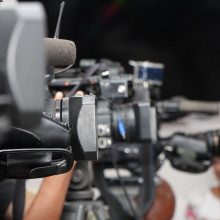
29:32 - From the scientists to the media
From the scientists to the media
with Dr Emma Smith, Science Information Manager at Cancer Research UK.
We're voyaging into the wonderful world of science. So far we've hear how 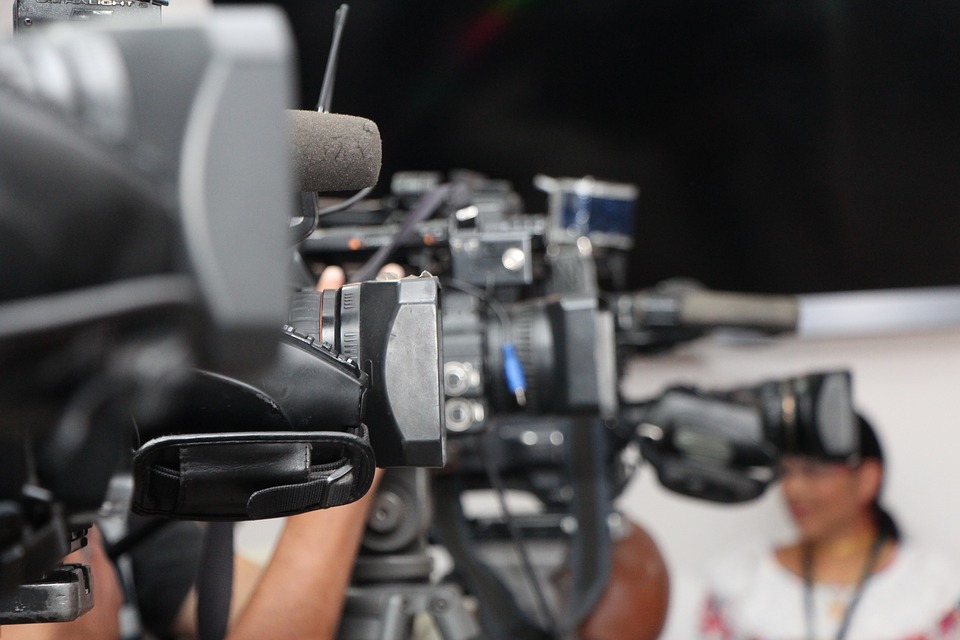 science works but not how it works itself into your ears. And so now, our first port of call is the press office at Cancer Research UK with Emma Smith...
science works but not how it works itself into your ears. And so now, our first port of call is the press office at Cancer Research UK with Emma Smith...
Emma - So to get something from a scientific journal into maybe a mainstream newspaper - that's where we step in.
Graihagh - That's Emma Smith, she's a...
Emma - Science Information Manager at Cancer Research UK.
Graihagh - Emma and our Kat Arney sat down for a natter about how research reaches us journalists...
Emma - Part of that falls down to our team and most of us are very highly trained scientists ourselves. A lot of us have PhD's, we're doctors, so we understand the basic fundamentals of research. That's not to say we understand every single scientific paper; I won't even pretend that, especially when it's something not in my field, but I can understand the fundamentals.
And then often what we'll do is we'll call the researcher themselves and ask them to explain it us us in their own words so we can get not only the information, the key findings but also some of the broader context: the background; how it fits in with other research; why it's new and what its potential importance could be.
Kat - So you've worked out the story, what's important, what you want to tell the public, then how does that get into the hands journalists, or say the Naked Scientists radio show, or a newspaper, or a website?
Emma - So one of the first things we do is write a press release and then the press team, this is their specific role, is to take that press release, the information in it and pitch it to journalists. So they'll send it to them via email or a quick telephone call to explain the key findings and try and get the journalists interested in the science.
Kat - So that's basically the process; you've got scientists doing the research; they write a scientific paper; you write a press release and then it gets into the papers. What other ways are there that organisations like Cancer Research UK, scientists, research funders - are there other ways that they're getting scientific information out to the public?
Emma - Of course, we don't just rely on our press releases. We've also got an award-winning blog which we use to explain scientific findings in a little bit more detail and with a bit more of a narrative than a paper can normally cover.
We also cover other people's research in the news feeds and we produce video content, animation - all this kind of extra material that helps explain the science that we're funding.
Kat - Increasingly, we're seeing a lot of organisations communicating directly with the public through things like social media, things like Facebook, Twitter, other social media platforms .Does Cancer Research UK do that and how do you do it?
Emma - We have Twitter accounts, Facebook account and, absolutely, people are very welcome to leave comments there and ask us questions. I actually think it has made a huge difference because, not only can people ask us things and get a quick reply but, also, other people who might be interested can see that question and see the answer, whereas before it was a much more closed system. So somebody, if they wanted to ask us a question, would have to write a letter, put it in the post, wait weeks for a rely and then nobody else would see it.
So I think this brings about a whole new level of transparency and communications with our supporters which, I think, is a great thing.
Kat - So you think people would be surprised to know how much you do work with journalists to get good stories out?
Emma - It's really important that we have very good relationships with journalists and also that they trust us, that trusting relationship is absolutely vital in the work we do. It can sometimes mean the difference between the journalist publishing or pulling a story and, very often, they will use Cancer Research UK as that balancing voice; the voice of expertise to give a balanced argument and to bring some fact and some truth into maybe an otherwise slightly exaggerated piece.
Kat - What's the worst story you've seen - what the one that made you absolutely slam your head on the desk and go... Really? They're saying this?
Emma - There have been so many - that's a hard call. I think one of my favourites was "going to the toilet in the night gives you cancer." And, actually, it was interesting research about circadian rhythms, and disrupting sleep patterns, and what effect that has on your hormones and chemicals that your body produce. Somehow it got turned into giving you cancer, which is always one of my favourites.
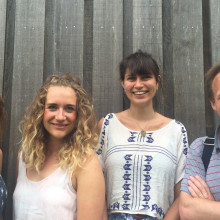
33:45 - Behind the scenes of the newsroom
Behind the scenes of the newsroom
with Chris Smith, Connie Orbach and Georgia Mills, Naked Scientists
Every wondered how we put together a programme? Chris Smith, Connie Orbach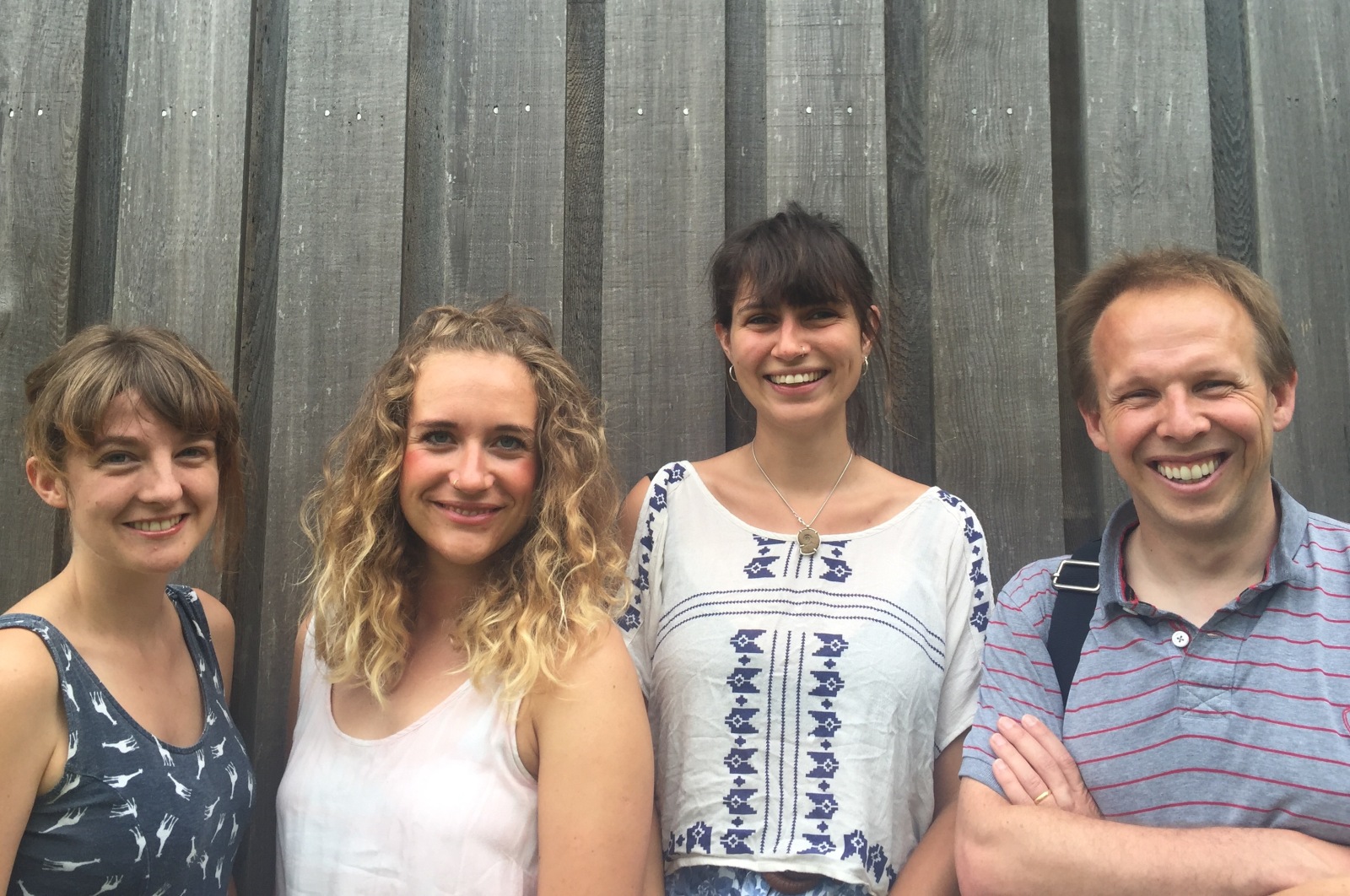 and Georgia Mills reveal all...
and Georgia Mills reveal all...
Georgia - Hi I'm Georgia and I'm one of the producers here at The Naked Scientists
Graihagh - There are three of us producers - Georgia, me and also Connie...
Connie - I've been here just over year.
Graihagh - Week in, week out, we three are the minions behind the scenes that pull the programme together - from coming up with an theme for a show, to finding and booking guests and also going out and recording reports. But we also set up the news interviews for Chris and Kat...
Not to be dramatic or anything but we have three short days to organise anywhere up to six, top notch interviews. And so, come Monday morning, the clock is already ticking...
Connie - OK. So we get in on a Monday and we tend to look at two main websites which give us all the embargoed news...
Georgia - So we kind of get a sneak peak so we're there when the news breaks...
Connie - There'll be some papers, especially on Nature, which don't have press releases but, mostly, we're looking at the press releases to give you that first kind of eye into the story. Because a paper title doesn't always give you that much of an idea of what you're looking for...
Graihagh - A circular inclusion with inhomogeneous non-slip imperfect interface in harmonic materials... hmm...
Georgia - And when we think about what's important, what do people want to know, we have this kind of mantra - it's health, wealth and heart...
Connie - Things that affect our health, obviously, we all care about so much...
Georgia - For example...
Chris - As the US declares its first homegrown cases of Zika in Florida, we've learned that up to ninety million people, including over one and a half million childbearing women, may be affected across the Americas as the initial wave of the Zika epidemic unfolds...
Georgia - Then we have wealth...
Connie - Things that hit your pocket and, in science, actually there's quite a lot of stuff which is just incredibly expensive...
Graihagh - This month, technology giant Apple have launched an all new 'digital wallet' - called Apple Pay - where you can now pay for your groceries using your iPhone! But Apple isn't the only tech firm changing how we manage our money...
Connie - And then heart is usually my favourite category. It's just the things that make you laugh - we call them "and finally stories" quite often. You know, in the news, when they say "and finally, why penguins don't get cold feet..."
Georgia - I like to get dinosaurs in there as often as possible...
Connie - That's the "and finally" - I love "and finalies..."
Graihagh - Right. Are you guys ready for a news meeting?...
Georgia - We might pitch three or four ideas each...
Connie - Because there's a lot of good science, and if we went for all of it, it takes forever...
Georgia - What's next? The producer for that week picks the ones for us to go forward with...
Connie - We all go away and we've got our stories that we need to look up, and so we need to contact the scientists and make a research call...
Georgia - Hear it straight from their mouths...
Graihagh - Hi - is that Professor Stephen Curry? Yes good, how are you?
Georgia - Find out a bit more about it and set up interviews with them...
Chris - I worked out the other day I'd probably interviewed about three and a half/four thousand people since I started doing these programmes...
Georgia - And we get about a twenty minute interview with then and then this is cut down to about four or five minutes, which is often the hardest thing - what do you choose to go in the programme...
Connie - Hopefully, by Thursday morning we have all of our interviews...
Georgia - And then once we've done that we write up a cue, which is something that introduces the interview...
Kat - Connie Orbach spoke with the University of Cape Town researcher Claire Spottiswood who's been out to Mozambique to study the phenomenon...
Georgia - We send in the audio of the managing editor to decide the running order for the programme...
Chris - OK. I'm Chris Smith and I have the dubious pleasure of running The Naked Scientists and being the person who set it up in the first place.
In order to choose and order for the stories in the news we have to be thinking about several things - foremost is what's our lead story? Because the first thing people want to hear is the thing that's going to grab their attention; it's going to make a big difference to their lives or the lives of many other people round the world, or it's going to change the way we view the world as a human race.
So if you take Ebola as a good example. This has been around for forty or fifty years since it was first discovered. People had largely dismissed this as a tropical disease and not really of much importance, apart from to those people who, a handful of them each year, were catching it. Suddenly, it begins to spread...
Kat - This week the lowdown on Ebola. We talk to the people in Sierra Leone who are trying to fight the outbreak. A new vaccine trial that's just kicked off and we hear how it's not just humans who are affected by Ebola, but our closest primate cousins too...
Graihagh - That's the lead story though, but how do you choose what comes next?
Chris - We don't want to dwell too much on one interviewer; we don't want to dwell too much on one subject, and so we try to create texture and movement in the news to keep people interested all the way through and provide them with a good snapshot of what's going on across the whole scientific arena.
What we then do is that we get together and we write a script which uses all of those cues (those written introductions) and links everything together. And the two presenters, often it's Kat Arney and myself but other members of the team also take part, we will then record those links in the studio and then we compile the programme by taking the interviews we've already done and putting them within those links...
Graihagh - And tadar!!! The Naked Scientists programme complete - Well, sort of! It goes through a series of checks and then is published on iTunes or Stitcher or whatever you use for your fine ears.
Chris - I think my favourite bit of the entire process is when I walk out of the studio on a Sunday night and you can say "that was a blinking good programme, I really enjoyed doing it and "phew" I've got tomorrow when I don't have to do any interviews."

39:39 - Dealing with the media
Dealing with the media
with Professor Stephen Curry, Imperial College London
A perspective from biologist Stephen Curry about what it's like to be interviewed  for radio...
for radio...
Stephen - After lunch, I head over to the students' union to judge a cake competition. The standard is not quite Bake Off but the students are full of enthusiasm for baking and, gratifyingly, for their studies. One even tells me how much he enjoyed my protein crystallography lectures; this is a far from universal reaction to material that many of the students find challenging, or as they put it, "boring".
On my way back to the office, I realise I've missed Alok Jha's radio 4 documentary on scientific integrity.
Alok - I've been reporting on science and scientists for more than fifteen years; it's an exhilarating experience, whether watching scientists...
Stephen - I was keen to hear it because I'd been interviewed for the programme back in January by Alok and his producer, Faizal Farook.
Alok - I went to visit Professor Stephen Curry at Imperial College London to find out what it's like on the front line of biology. Stephen how are you?
Stephen - Hi Alok - it's good to see you again.
Okay well my lab is mostly a structural biology lab so we're interested in the structures of various different protein molecules and particularly the area we work in is in RNA viruses. So things like norovirus (the winter vomiting bug) or foot-and-mouth disease virus, which are actually related to one another in genetic terms.
We'd spent over an hour talking about how the pressures on researchers can sometimes pervert what is reported in the scientific literature.
The philosophers of science will teach you that a hypothesis can only be falsified and what scientists should set out to do is to falsify a hypothesis. Well, in reality, if you come up with a hypothesis it's because some of your existing data's told you that's probably a good idea and you then do experiments to try and generate more data that will, hopefully, test and support the hypothesis. If you thought of a brilliant idea, you want it to be true.
Alok - So the reality of scientific thinking might not exactly comply with the philosophical ideals and that can cause...
Stephen - It's a good documentary. Alok has dug deep into the topic by talking to a lot of interesting people -including a Dutch psychology researcher, Diederik Stapel, who had been caught fabricating his data. My only beef with it is that much of what I had to say has ended up on the cutting room floor. I should have been pithier, I tell myself.
But I'm not really put out. I'm happy to contribute to these sorts of programmes. Most scientists rely on public funding of one form or another and to me, that brings with it the responsibility to give a good account (in both senses of the word) of what we do with it. Some of my colleagues are more wary of talking to journalists, moaning privately of their tendency to sensationalise, but the only effective counter to that is talking to them.
I've had my own run-ins, to be sure. I'm taken a number of journalists to task on my blog for over-egging a story or for not taking enough trouble to get the facts straight. We've all seen the articles on miracle cures for cancer or MS or whatever.
But it's not always the journalists to blame. A study from the the British Medical Journal found that press releases in health-related research were the primary source of inaccuracies. So universities - and their scientists - are sometimes guilty of overstating the significance of their work.
We're back to the problem of needing to recalibrate our incentives to reward good, reliable science. That's not to say that we shouldn't shout about the really exciting stuff - the Higgs Boson or the development of genome editing (or, in my case, work showing how norovirus replication gets kick started in infected cells) - but we also have to be honest about the fact that most scientific advances are relatively small.
Even so, those smaller stories can be interesting and are worth telling, not least so that people can see that science is mostly a rather ordinary business. There can also be a way in to important debates that deserve to be aired in public, on the future of gene editing in humans, for example, or three-parent babies, or artificial intelligence. Science needs debate and direction, to help us think through the ethics and morality surrounding future research.
I stare at the photo of my children on the desk, wondering what the world of science will be like when they reach my age. I pack my bag and try not think about the train journey home, where I'll be stuffed in with other sweaty commuters on this muggy summer's day.
I console myself: it's been a long day and tomorrow will be different. And then I remember that tomorrow will be different. I have cleared the whole day for marking exams.

44:32 - Is social media changing journalism?
Is social media changing journalism?
with Nic Newman, Oxford University
With the invention of social media, the landscape of news is drastically changing and some are worried about what the implications may be. First up, Nic Newman took Graihagh Jackson through what these changes are...
Nic - So my name is Nic Newman. I'm a digital strategist and I'm a research associate at the Reuters Institute for the Study of Journalism at Oxford University.
Graihagh - You have quite an impressive C.V. because I was being nosy and having a look on your website. It reads:-
Nic was a founding member of the BBC News website leading international coverage as World Editor; as Head of Product Development for BBC news you helped introduce innovations such as blogs and podcasting and on demand video. That's quite something!
Nic - Yes. Well the founding of BBC News online was very exciting but I did fifteen years before that working in radio and television and, yes, was part of the team that helped set up the online website. My main focus was international news, which I did for a number of years, and then changed to looking at technology and working with software engineers and designers and did that for about ten years. It's almost like two careers within the BBC.
Graihagh - Yes, quite - all the things. So you must be well placed to tell me what news was like ten years ago or so before we had the invention of mobile phones and, really, social media?
Nic - Well news has been right at the centre of the digital storm when things were very different ten or fifteen years ago. There were a relatively small number of gatekeepers and most people accessed news through those gatekeepers, so newspapers and television. And what's happened with digital is there's been this explosion in media but there's also been a convergence, so it's very hard to tell now what a newspaper is. So pretty much everything has changed and the driver behind that has been the internet.
Graihagh - I wonder if we can take some of these emerging trends one by one if you like. So, obviously mobile has been a big one - how has that changed how we are accessing news and also our behaviour, I suppose, of how we look at news?
Nic - What's happened with mobile is that it's changed the time at which people access news; they can access it anytime through the day, but it's also changed the formats of news. So, because of the size of the screens it's opened up different kinds of content so content that's much more snackable, content that much more visual works really well; it's harder to read long articles. And while people still consume on desktops we're moving to a stage where the mobile will be the predominant way in which people consume digital news.
Graihagh - And the other thing I found absolutely bonkers was that - is it 28% of young people were getting their news primarily from social media and this is the first time it's overtaken TV?
Nic - So, younger people have very different ways of accessing news and it's quite passive really. I mean, they're looking at those social media feeds because that's where they spend most of their time talking to their friends and they almost bump into news incidentally through that process, or if there's something really big happening and then, obviously, that comes to the centre of conversations that they're having.
Graihagh - I wonder though is that creating on a journalistic front more pressure to create these click big titles that evoke emotion and feelings so that you still capture that online audience and therefore, I suppose, the advertising money?
Nic - It's complex. I think that the type of content that is successful, in Facebook in particular, but many social networks is driven much more by emotion. So Facebook algorithms respond very well to content that is emotionally engaging or forces some kind of reaction in you.
So I think that is changing the nature of content itself and as result of that, we're seeing more content being produced like that by traditional publishers. And some people are quite concerned about this because they fear that traditional fact-based information and during the Brexit campaign, of course, people said "well where are the facts you know we want to know the facts" rather than a lot of videos that tug at your emotions so big decisions are made by emotion rather than by facts.
So currently that's a really big argument - is social media changing content in a way that's unhealthy for democracy?
Graihagh - I've got to ask you since we're a radio programme - where does radio fit into all of this?
Nic - I think audio is really interesting because it hasn't been as affected as print or even television. Audio is just amazing because you can do other things; you can do cooking or you can drive a car while you're listening, so it's quite a unique medium. Things like television require your full attention; our smart phone requires your full attention, so I think audio is going to carry on being quite successful. I think what changes it is the way technology is now coming into the car; so the ability to deliver on-demand content and live internet availability into cars, which is happening in The States, but hasn't really taken off yet in the UK
I think these things are going to help to reinvent audio, help to reinvent the formats of audio; we've seen that in the States with some of these new podcasts like "Serial" but, in the most part, what audio is in the UK is traditional linear programmes delivered on demand and I think that's going to change.
There's whole areas of audio which just haven't adapted in the same way as videos adapted; short form format, sharing of audio, finding audio, clipping audio. These things are pretty standard in video but we don't yet have the tools on the internet to enable that sort of thing to happen.
Graihagh - Yes, you're right - I very much agree! Someone needs to come up with a better podcasting platform.
Nic - Just take the radio you know. The radio is not as powerful as your smartphone. Internet radios, for example, are really complicated in terms of finding your way round to open up the possibilities of on-demand audio. A smartphone is much, much better because those interfaces have a screen and the radio just has not adapted. Even interactive televisions have adapted more than radios.
Graihagh - Gosh, I just can't wait for it to happen to be honest! The day when you can share a small thirty second clip on facebook or whatever.
Nic - I think it's amazing it hasn't happened already in a really effective way.
Graihagh - Watch this space - I think we've got a business idea here!
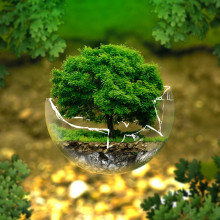
50:54 - Science: For good or bad?
Science: For good or bad?
with Tom Ziessen, Wellcome Trust
Science is usually touted as a good thing, but could there be a dark side? Graihagh Jackson debated this with Tom Ziessen...
Tom - It becomes quite obvious as to 'why science?' when you look back at at all the advances that have happened.
So I'm Tom Zeissan. I am in the Engaging Science team at the Wellcome Trust.
Graihagh - I was interested in talking to Tom about Wellcome because, well, it provides science funding for thousands of people across the world. It's not a government body, it's a charity and thus has no obligations to do so. Why then does it? Well it starts with a chap called Sir Henry Wellcome...
Tom - He was an American marketeer; he was born in the mid-west and from an early age was trying to sell products to friends and family. He started out selling invisible ink, I think, was his first thing...
Graihagh - Invisible ink!
Tom - Invisible ink which was, just basically, lemon juice - I think he was sixteen when he started that.
He came over to the UK in the 1880s to found the Wellcome Foundation, and Henry Wellcome was always very interested in the arts and science of healing through the ages.
Henry died in 1936 and in his Will he set up the Wellcome Trust.
Graihagh - Because I think what's quite different about Wellcome is that most people get their funding from big research bodies from the government so, EPSRC, STFC, whereas Wellcome sits in this unusual sort of framework?
Tom - Yes, that's right. So we are a very large funder of research that's non-government - we're independent; we're not unique in that respect. But our funding supports, currently, over fourteen thousand people in more than seventy countries.
Graihagh - And I suppose that brings me onto my next question. I wonder - why science? - why should science be put on a pedestal among all the other things that this money could be used for?
Tom - Actually, Wellcome Trust is not just interested in science. We're interested in all kinds of research related to health and wellbeing but, coming back to your question of: why do we place science as such an important part of what we do - it's because we think that science is a great way of giving us insights into the way the world works, the way we work. It becomes quite obvious as to 'why science?' when you look back at all the advances that have happened since 1936, or since the sort of scientific revolution and the improvements that's made to health and wellbeing.
Graihagh - But arguably it's not always been used for good things. I'm thinking the haber bosch process was used by the Nazi's as the poisonous gas in the holocaust, and then there's nuclear weapons. You've painted a very rosy picture of the use of science there.
Tom - Uh, yes. I mean, I think anything can be useful for bad purposes as well as for good purposes. That's not really a problem with science, that's really a problem with humanity and I don't think science is a force for good or evil. It's a way of understanding the world, understanding of what potential there is there but, hopefully, the majority of uses for it are beneficial.
Graihagh - I suppose the other side of this is that science has enabled populations to grow, it's enabled us to develop cars, which then produce lots of greenhouse gases. And I read this great quote that "man has survived millennia without science but may not survive a mere two centuries of science." With all these problems we're in some ways creating for ourselves, if that makes sense?
Tom - It does make sense. I think it's a very pessimistic view of the world but there's no question that there are problems related to scientific developments; there are more people around; they're living longer and using more resources. They're also happier, healthier and able to enjoy lives that wouldn't have been possible prior to science.
Graihagh - The future of science looks to be an interesting place. In the time that the Naked Scientists have been around, we've seen the advent of global warming and accelerated destruction of our natural world...
David Attenborough - This loss not only diminishes the beauty and diversity of the natural world, it also puts our own future in jeopardy.
Graihagh - And 3D printed guns...
So in this case what's happening is that you're downloading a digital file that defines this object - in this case a gun. You send that to a 3D printer which literally builds it up until you end up with a gun.
Graihagh - But also a new age of physics...
We have discovered a new particle, a boson. Most probably a Higgs boson but we have to find out which kind of Higgs Boson this is - what are its properties and where do they point to?
Ladies and gentleman... we have detected gravitational waves. We did it!
Graihagh - That only leads me to question - what next for science? Only time will tell...









Comments
Add a comment